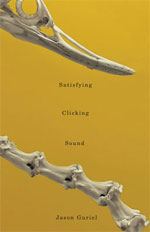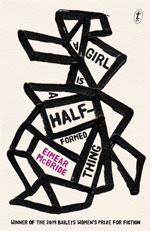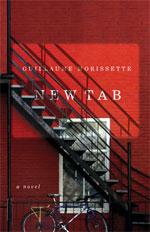 CBC Books has just served up another delicious helping of CanLit, a way for us to reflect on, ponder and debate the books that make us proud to be Canadian – not to mention a way for us to determine how complete and comprehensive our own reading is, and where we need to fill in some gaps. Here is the list of 100 novels that their team has compiled to meet these general criteria:
CBC Books has just served up another delicious helping of CanLit, a way for us to reflect on, ponder and debate the books that make us proud to be Canadian – not to mention a way for us to determine how complete and comprehensive our own reading is, and where we need to fill in some gaps. Here is the list of 100 novels that their team has compiled to meet these general criteria:
Canada has a wealth of writers telling today’s tales, revisiting our past and imagining our future. Literary or mystery, comic or graphic, historical or out of this world, the 100 novels on our list are must-read books.
CBC Books considered everything from cultural impact and critical reception to reader response to choose these titles. The authors all call or once called Canada home, and the novels are all in print. Enjoy!
CBC Books makes it easy for you to determine how many of the books on their list you’ve already read. I’ve read 55 (some of those multiple times), which pleases me in that it’s a nice balance of feeling I’m keeping up, but can always learn and discover more.
What is nice and kinda chewy about this list is that you can come at it from numbers of different angles. The list on the CBC Books page is sorted alphabetically by title, and also breaks out titles by specific types or genres, such as comics and graphic novels, historical fiction, mystery and more. How about these views of the list?
How about your own approaches to the great list which CBC Books has provided to seed our ongoing CanLit discussion – how would you sort, prioritize, add and delete?
CBC Books 100 Novels sorted alphabetically by author
It’s interesting to see which authors – new, established, historical – are represented on the CBC Books 100 Novels list, and which authors avid Canadian literature aficionados might think are missing.
Adamson, Gil
The Outlander
Anderson-Dargatz , Gail
The Cure for Death by Lightning
Atwood, Margaret
The Handmaid’s Tale
Alias Grace
Badami, Anita Rau
The Hero’s Walk
Baldwin, Shauna Singh
What the Body Remembers
Barclay, Linwood
No Time for Goodbye
Bergen, David
The Time in Between
Blais, Marie-Claire
trans. Derek Coltman
A Season in the Life of Emmanuel
Blunt, Giles
Forty Words for Sorrow
Boyden, Joseph
The Orenda
Three Day Road
Brand, Dionne
What We All Long For
Catton, Eleanor
The Luminaries
Choy, Wayson
The Jade Peony
Clarke, Austin
The Polished Hoe
Clarke, George Elliott
George & Rue
Coady, Lynn
The Antagonist
Cohen, Leonard
Beautiful Losers
Cohen, Matt
Elizabeth and After
Coupland, Douglas
Generation X
Courtemanche, Gil
trans. Patricia Claxton
A Sunday at the Pool in Kigali
Crummey, Michael
Galore
Davies, Robertson
Fifth Business
deWitt, Patrick
The Sisters Brothers
Doctor, Farzana
Six Metres of Pavement
Donoghue, Emma
Room
Edugyan, Esi
Half-Blood Blues
Engel, Marian
Bear
Fallis, Terry
The Best Laid Plans
Ferguson, Will
419
Findley, Timothy
The Wars
Francis, Brian
Fruit
Galloway, Steven
The Cellist of Sarajevo
Gibb, Camilla
Sweetness in the Belly
Gibson, William
Neuromancer
Govier, Katherine
Creation
Gowda, Shilpi Somaya
Secret Daughter
Gowdy, Barbara
The Romantic
Grant, Jessica
Come, Thou Tortoise
Hage, Rawi
De Niro’s Game
Hay, Elizabeth
Late Nights on Air
Hébert, Anne
trans. Norman Shapiro
Kamouraska
Highway, Tomson
Kiss of the Fur Queen
Hill, Lawrence
The Book of Negroes
Hopkinson, Nalo
Brown Girl in the Ring
Johnston , Wayne
The Colony of Unrequited Dreams
Kay, Guy Gavriel
Tigana
King, Thomas
Green Grass, Running Water
Kogawa, Joy
Obasan
Laferriere, Dany
trans. David Homel
How to Make Love to a Negro without Getting Tired
Laurence, Margaret
The Stone Angel
Lawson, Mary
Crow Lake
Leacock , Stephen
Sunshine Sketches of a Little Town
Lemire, Jeff
Essex County
Lyon, Annabel
The Golden Mean
MacDonald, Ann-Marie
Fall on Your Knees
MacIntyre, Linden
The Bishop’s Man
MacLennan , Hugh
Two Solitudes
MacLeod, Alistair
No Great Mischief
Maharaj, Rabindranath
The Amazing Absorbing Boy
Martel, Yann
Life of Pi
McKay , Ami
The Birth House
Michaels, Anne
Fugitive Pieces
Mistry, Rohinton
A Fine Balance
Moore, Lisa
February
Mootoo, Shani
Cereus Blooms at Night
Morrissey, Donna
Kit’s Law
Nawaz, Saleema
Bone and Bread
O’Malley, Bryan Lee
Scott Pilgrim’s Precious Little Life
O’Neill, Heather
Lullabies for Little Criminals
Ondaatje, Michael
In the Skin of a Lion
Ozeki, Ruth
A Tale for the Time Being
Penny, Louise
Still Life
Pullinger, Kate
The Mistress of Nothing
Pyper, Andrew
Lost Girls
Quarrington , Paul
Whale Music
Ricci, Nino
Lives of the Saints
Richards, David Adams
Mercy Among the Children
Richler, Mordecai
Barney’s Version
Robinson, Eden
Monkey Beach
Selvadurai, Shyam
Funny Boy
Shields, Carol
The Stone Diaries
Smart, Elizabeth
By Grand Central Station I Sat Down and Wept
Soucy, Gaétan
trans. Sheila Fischman
The Little Girl Who Was Too Fond of Matches
Swan,Susan
The Wives of Bath
Tamaki, Mariko & Jillian
Skim
Thien, Madeleine
Certainty
Thuy, Kim
trans. by Sheila Fischman
Ru
Toews, Miriam
A Complicated Kindness
Urquhart, Jane
Away
Van Camp, Richard
The Lesser Blessed
Vanderhaeghe, Guy
The Englishman’s Boy
Vassanji, M.G.
The Book of Secrets
Wagamese, Richard
Indian Horse
Watson , Sheila
The Double Hook
Whittall, Zoe
Holding Still for as Long as Possible
Wilson, Ethel
Swamp Angel
Wilson, Robert Charles
Spin
Winter, Kathleen
Annabel
CBC Books 100 Novels sorted chronologically by publication year
Doesn’t this give an interesting perspective of how the CBC Books 100 Novels list spans recent and more historical choices? The CBC Books list offers 43 titles published before 2000, 57 in the last 13 years.
1912
Sunshine Sketches of a Little Town
Leacock, Stephen
1945
Two Solitudes
MacLennan, Hugh
By Grand Central Station I Sat Down and Wept
Smart, Elizabeth
1954
Swamp Angel
Wilson, Ethel
1959
The Double Hook
Watson, Sheila
1964
The Stone Angel
Laurence, Margaret
1966
Beautiful Losers
Cohen, Leonard
1970
Fifth Business
Davies, Robertson
Kamouraska
Hébert, Anne
trans. Norman Shapiro
1976
Bear
Engel, Marian
1977
The Wars
Findley, Timothy
1981
Obasan
Kogawa, Joy
1984
Neuromancer
Gibson, William
1985
The Handmaid’s Tale
Atwood, Margaret
How to Make Love to a Negro without Getting Tired
Laferriere, Dany
trans. David Homel
1987
In the Skin of a Lion
Ondaatje, Michael
1989
Whale Music
Quarrington, Paul
1990
Tigana
Kay, Guy Gavriel
Lives of the Saints
Ricci, Nino
1991
Generation X
Coupland, Douglas
1993
Green Grass, Running Water
King, Thomas
The Stone Diaries
Shields, Carol
The Wives of Bath
Swan, Susan
Away
Urquhart, Jane
1994
Funny Boy
Selvadurai, Shyam
The Book of Secrets
Vassanji, M.G.
1995
The Jade Peony
Choy, Wayson
A Fine Balance
Mistry, Rohinton
1996
The Cure for Death by Lightning
Anderson-Dargatz, Gail
Alias Grace
Atwood, Margaret
Fugitive Pieces
Michaels, Anne
Cereus Blooms at Night
Mootoo, Shani
The Lesser Blessed
Van Camp, Richard
The Englishman’s Boy
Vanderhaeghe, Guy
1997
Barney’s Version
Richler, Mordecai
1998
Kiss of the Fur Queen
Highway, Tomson
Brown Girl in the Ring
Hopkinson, Nalo
The Colony of Unrequited Dreams
Johnston, Wayne
1999
What the Body Remembers
Baldwin, Shauna Singh
Elizabeth and After
Cohen, Matt
No Great Mischief
MacLeod, Alistair
Kit’s Law
Morrissey, Donna
2000
The Hero’s Walk
Badami, Anita Rau
Forty Words for Sorrow
Blunt, Giles
A Sunday at the Pool in Kigali
Courtemanche, Gil
trans. Patricia Claxton
Monkey Beach
Robinson, Eden
The Little Girl Who Was Too Fond of Matches
Soucy, Gaétan
trans. Sheila Fischman
2001
Three Day Road
Boyden, Joseph
George & Rue
Clarke, George Elliott
Life of Pi
Martel, Yann
Mercy Among the Children
Richards, David Adams
2002
The Polished Hoe
Clarke, Austin
Crow Lake
Lawson, Mary
Fall on Your Knees
MacDonald, Ann-Marie
2003
Creation
Govier, Katherine
The Romantic
Gowdy, Barbara
Lost Girls
Pyper, Andrew
2004
A Complicated Kindness
Toews, Miriam
2005
The Time in Between
Bergen, David
What We All Long For
Brand, Dionne
Sweetness in the Belly
Gibb, Camilla
Spin
Wilson , Robert Charles
2006
De Niro’s Game
Hage, Rawi
The Birth House
McKay, Ami
Lullabies for Little Criminals
O’Neill, Heather
Still Life
Penny, Louise
2007
The Outlander
Adamson, Gil
No Time for Goodbye
Barclay, Linwood
Late Nights on Air
Hay, Elizabeth
The Book of Negroes
Hill, Lawrence
Certainty
Thien, Madeleine
2008
The Best Laid Plans
Fallis, Terry
The Cellist of Sarajevo
Galloway, Steven
2009
A Season in the Life of Emmanuel
Blais, Marie-Claire
trans. Derek Coltman
Galore
Crummey, Michael
Essex County
Lemire, Jeff
The Golden Mean
Lyon, Annabel
The Bishop’s Man
MacIntyre, Linden
Scott Pilgrim’s Precious Little Life
O’Malley, Bryan Lee
The Mistress of Nothing
Pullinger, Kate
2010
Room
Donoghue, Emma
Fruit
Francis, Brian
Secret Daughter
Gowda, Shilpi Somaya
Come, Thou Tortoise
Grant, Jessica
February
Moore, Lisa
Skim
Tamaki, Mariko & Jillian
Holding Still for as Long as Possible
Whittall, Zoe
Annabel
Winter, Kathleen
2011
The Antagonist
Coady, Lynn
The Sisters Brothers
deWitt, Patrick
Six Metres of Pavement
Doctor, Farzana
Half-Blood Blues
Edugyan, Esi
The Amazing Absorbing Boy
Maharaj, Rabindranath
2012
419
Ferguson, Will
Ru
Thuy, Kim
trans. by Sheila Fischman
Indian Horse
Wagamese, Richard
2013
The Orenda
Boyden, Joseph
The Luminaries
Catton, Eleanor
Bone and Bread
Nawaz, Saleema
A Tale for the Time Being
Ozeki, Ruth
A list of 100 Canadian books (read or to be read) inspired by the CBC Books 100 Novels list
Needless to say, the CBC Books 100 Novels list stirred up a lot of discussion in a household with a pair of folks who are intensely avid readers and book collectors who also happen to work in very book-oriented professions (libraries and literary prizes). While we appreciate the obvious thought that went into the original CBC Books list, we couldn’t resist using it as the basis for own list. The exercise proved not only how challenging (perhaps impossible) it is to compile a definitive list – kudos once again, CBC Books! – but it also highlights just how rich the CanLit treasure trove is. Here’s how we approached our list and some of what we discovered:
- Our list of 100 Canadian books / works of fiction simply had to include short story collections. Major literary awards for fiction in this country look at it that way, too. Canada is known internationally for its short story craft, with a certain Nobel winner as one of our greatest but certainly not our only ambassador in this realm. Our list wholeheartedly includes short story collections.
- We felt there should be a bit more balance between books published pre- and post-2000. The CBC Books list is 43/57 – ours is 51/49.
- We removed and replaced 15 titles from the original list.
- On this newly compiled list, I’ve admittedly read a few more – 61 as opposed to 55 on the original CBC Books list. That means I still have some reading to do, which I don’t mind at all!
On the following list, I’ve highlighted where we’ve placed different books, or where we’ve substituted different titles for authors represented on the original list.
Adamson, Gil
The Outlander
Anderson-Dargatz, Gail
The Cure for Death by Lightning
Atwood, Margaret
The Handmaid’s Tale
Alias Grace
Badami, Anita Rau
The Hero’s Walk
Baldwin, Shauna Singh
What the Body Remembers
Barclay, Linwood
No Time for Goodbye
Bemrose, John
The Island Walkers
Bergen, David
The Time in Between
Blais, Marie-Claire
trans. Derek Coltman
A Season in the Life of Emmanuel
Blunt, Giles
Forty Words for Sorrow
Boyden, Joseph
Three Day Road
Brand, Dionne
What We All Long For
Buckler, Ernest
The Mountain and the Valley
Callaghan, Morley
Such is My Beloved
Catton, Eleanor
The Luminaries
Choy, Wayson
The Jade Peony
Clarke, Austin
The Polished Hoe
Clarke, George Elliott
George & Rue
Coady, Lynn
The Saints of Big Harbour
Cohen, Leonard
Beautiful Losers
Cohen, Matt
Elizabeth and After
Coupland, Douglas
Generation X
Courtemanche, Gil
trans. Patricia Claxton
A Sunday at the Pool in Kigali
Crummey, Michael
Galore
Davies, Robertson
Fifth Business
deWitt, Patrick
The Sisters Brothers
Doctor, Farzana
Six Metres of Pavement
Donoghue, Emma
Room
Edugyan, Esi
Half-Blood Blues
Engel, Marian
Bear
Fallis, Terry
The Best Laid Plans
Findley, Timothy
The Wars
Francis, Brian
Fruit
Gallant, Mavis
The Other Paris
Galloway, Steven
The Cellist of Sarajevo
Gaston, Bill
Mount Appetite
Gibson, William
Neuromancer
Govier, Katherine
Fables of Brunswick Avenue
Gowda, Shilpi Somaya
Secret Daughter
Gowdy, Barbara
We So Seldom Look on Love
Grant, Jessica
Come, Thou Tortoise
Grove, Frederick Phillip
A Search for America
Hage, Rawi
De Niro’s Game
Harvey, Kenneth
Inside
Hay, Elizabeth
Late Nights on Air
Hébert, Anne
trans. Norman Shapiro
Kamouraska
Hiebert, Paul
Sarah Binks
Highway, Tomson
Kiss of the Fur Queen
Hill, Lawrence
The Book of Negroes
Johnston , Wayne
The Colony of Unrequited Dreams
Kay, Guy Gavriel
Tigana
Kelly, MT
A Dream Like Mine
King, Thomas
Green Grass, Running Water
Kogawa, Joy
Obasan
Laferriere, Dany
trans. David Homel
How to Make Love to a Negro without Getting Tired
Laurence, Margaret
The Stone Angel
Lavery, John
Sandra Beck
Leacock, Stephen
Sunshine Sketches of a Little Town
Lemire, Jeff
Essex County
MacDonald, Ann-Marie
Fall on Your Knees
MacIntyre, Linden
The Bishop’s Man
MacLennan, Hugh
Two Solitudes
MacLeod, Alistair
No Great Mischief
Maharaj, Rabindranath
The Amazing Absorbing Boy
Martel, Yann
Life of Pi
McKay, Ami
The Birth House
Michaels, Anne
Fugitive Pieces
Mistry, Rohinton
A Fine Balance
Moore, Brian
The Luck of Ginger Coffey
Moore, Lisa
February
Mootoo, Shani
Cereus Blooms at Night
Munro, Alice
The Progress of Love
Nawaz, Saleema
Bone and Bread
O’Neill, Heather
Lullabies for Little Criminals
Ondaatje, Michael
In the Skin of a Lion
Penny, Louise
Still Life
Pullinger, Kate
The Mistress of Nothing
Quarrington, Paul
King Leary
Ricci, Nino
Lives of the Saints
Richards, David Adams
Nights Below Station Street
Richler, Mordecai
Solomon Gursky Was Here
Barney’s Version
Robinson, Eden
Monkey Beach
Ross, Sinclair
As For Me and My House
Selvadurai, Shyam
Funny Boy
Shields, Carol
The Stone Diaries
Smart, Elizabeth
By Grand Central Station I Sat Down and Wept
Snyder, Carrie
The Juliet Stories
Soucy, Gaétan
trans. Sheila Fischman
The Little Girl Who Was Too Fond of Matches
Toews, Miriam
A Complicated Kindness
Urquhart, Jane
The Stone Carvers
Van Camp, Richard
The Lesser Blessed
Vanderhaeghe, Guy
The Englishman’s Boy
Vassanji, M.G.
The Book of Secrets
Wagamese, Richard
Indian Horse
Watson, Sheila
The Double Hook
Wilson, Ethel
Swamp Angel
Wilson, Robert Charles
Spin
Winter, Kathleen
Annabel








